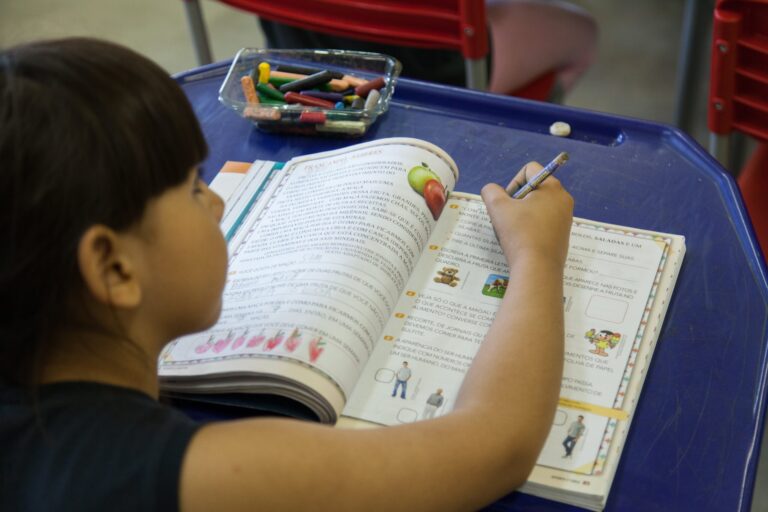Brazil’s Ministry of Education (MEC) has announced the National Child Literacy Commitment today. The commitment aims to ensure that children learn to read and write at the right age—by the age of seven at the end of the 2nd grade. It also seeks to ensure learning recovery for 100% of 3rd, 4th, and 5th grade students while considering the pandemic’s negative impact on them. It’s a systemic policy with a four-year BRL 3 billion investment and calls for collaboration between the federal, state, and municipal governments.
In addition to technical and financial support, the commitment is guided by five key pillars: management, training, materials, infrastructure, assessment, and monitoring. These guiding principles entail various planned actions. For instance, scholarship programs will be in place to engage state, regional, and municipal coordinators with the initiative. Other actions will include providing didactic and pedagogical materials to support teachers, aligning local and national literacy assessments, and allocating resources for school infrastructure improvements.
Amidst educators, education administrators, and students attending the ceremony at the Planalto Palace, Professor Daniele Sampaio, a literacy teacher from Rio de Janeiro, described the commitment as a “historic moment.” She stated, “Literacy is a fundamental stage in the educational journey of any individual, and it enables social transformation. Basic reading, writing, and comprehension skills are acquired during this period and become the foundation for lifelong learning. These skills not only expand their intellectual horizons but also stimulate their active participation in society.” She also emphasized that literacy “fosters autonomy and confidence, allowing children to become agents of change in their communities, challenging inequalities, and promoting social inclusion.”
The Minister of Education, Camilo Santana, highlighted that the commitment was crafted through the collective effort of state and municipal representatives, teachers, experts, and universities. He stated, “It is in this spirit of collaboration and partnership that we aim to transform education in Brazil. We have an ambition and a duty as a country: to care for our children, ensuring their right to read and write.” He also noted the critical state of education in the country.
The recent results of the Alfabetiza Brasil survey, which establishes the parameters for defining what is expected of a literate child, confirmed the low levels from previous years. The study conducted by the Anísio Teixeira National Institute for Educational Studies and Research (INEP) revealed that 56.4% of students were considered non-literate based on their performance in Brazil’s 2021 National Learning Assessment (SAEB). Furthermore, in the PIRLS international assessment, which measures reading progress among 4th-graders, Brazil ranked among the lowest performers, with approximately 75% of Brazilian 10-year-olds lagging behind the average of virtually all developed countries that participated in the assessment.
For Daniela Caldeirinha, Director of Literacy at the Lemann Foundation, MEC’s commitment is a significant step towards reversing the current situation. She said, “Literacy at the right age is critical for individuals to develop fully and continue their educational journey successfully. Not being literate at the right age disrupts the student’s educational path, resulting in grade repetition, age-grade distortion, and school dropouts, and it limits children from developing to their full potential.”
Ms. Caldeirinha emphasized that the commitment announced by MEC reinforces the work already underway in 16 Brazilian states through the Collaborative Literacy Program (PARC). Inspired by the state of Ceará’s example, the PARC states already coordinate literacy policies with municipalities. “Now it’s time to roll up our sleeves, coordinate efforts in the field, and reach the territories to make it happen in states and municipalities,” she concluded.

